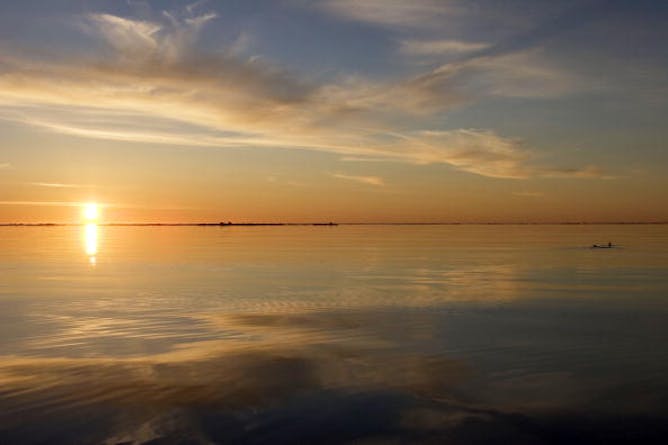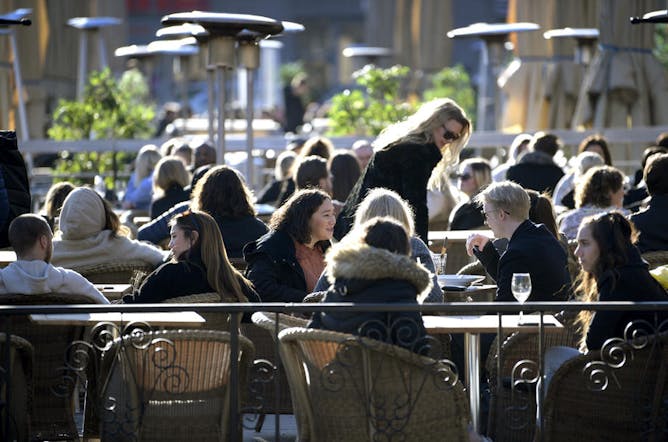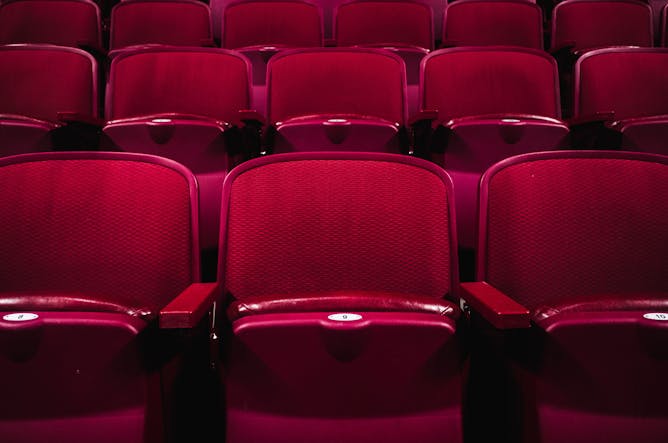|
|
|
Editor's note
|
|
We are often asked, how does The Conversation work? As in, how are the articles generated? One way of finding out is by coming to one of our 30-minute morning editorial meetings.
Guests at these conferences can hear which articles are scheduled and participate in the process of developing some of the ideas that we will work on with academic authors. Normally, they take place in the UK in our newsroom, at UCL in central London. Of course, at the moment we are all working from home.
But the invitation still stands. We remain extremely keen to have readers and authors join us by video conference call, to talk about the articles they want to read, and to hear how we are collaborating with leading experts and our colleagues at the eight editions of The Conversation around the globe.
An example of the network working together is this wide-ranging long read by Ian Goldin and Robert Muggah, which was commissioned out of Johannesburg. It considers how different the world after COVID-19 might look, warns that it is the global south that will bear the brunt of the crisis in the long term, and calls for a more coordinated international approach to tackling the pandemic.
Today we also carry:
• a report on the science behind Sweden’s very different strategy
• advice from the Middle Ages on how to deal with isolation
• thoughts on the role of now absent TV studio audiences
Scroll down to get a sense of the range and quantity of content The Conversation produces in a typical day. So, if you wish to know more about how we, as a charity, make this happen drop us an email here. And we hope we’ll see some of you soon on screen.
Meanwhile, stay safe, and keep well.
|
|
|
Top stories
|

Gettyimages
Ian Goldin, University of Oxford; Robert Muggah, Pontifical Catholic University of Rio de Janeiro (PUC-Rio)
The consequences will be far more severe and long lasting in poorer countries.
|

Outdoor restaurant at a square in central Stockholm, Sweden, 26 March 2020.
EPA-EFE/Janerik Henriksson
Paul W Franks, Lund University; Peter M Nilsson, Lund University
Swedish authorities estimate that there are more people with COVID-19 who don't show symptoms than those in other countries.
|

Enclosing of an anchoress (14th century).
Cambridge, Corpus Christi College, MS 079: Pontifical
Godelinde Gertrude Perk, University of Oxford
Some medieval Christian women locked themselves away in the name of their faith. Here are their insights into self-isolation.
|

TV shows are going out without audiences but some are finding novel ways to include participation.
PxFuel
Vanessa Jackson, Birmingham City University
Shows are being broadcast to empty studios but audiences are fundamental to the quality of entertainment.
|
Politics + Society
|
-
Nicholas Allen, Royal Holloway
Can a prime minister work from home?
-
Martin Farr, Newcastle University
The particulars of the British political system come into play at times like these.
-
Steve Schifferes, City, University of London
The current pandemic could be the undoing of globalisation if countries fail to cooperate and choose isolationism over a common purpose.
-
Ruth Kinna, Loughborough University; Thomas Swann, Loughborough University
'Mutual aid' groups are springing up all over. It's a concept first described by Peter Kropotkin in the 19th century.
-
Nick McKerrell, Glasgow Caledonian University
Coronavirus may be delaying Alex Salmond's reckoning, but both the Scottish government and the SNP as a party have some difficult times ahead.
-
Aidan Hehir, University of Westminster
The collapse of the government in Kosovo is a victory for reactionary forces within Kosovo and the self-seeking agenda of the Trump administration.
|
|
Arts + Culture
|
-
Arshin Adib-Moghaddam, SOAS, University of London
A poem by the Persian polymath Sa'adi helps us understand our shared vulnerability to coronavirus
-
Alec Charles, University of Winchester
In times like these, sometimes having a good laugh is the only thing to do.
-
James Reade, University of Reading; Carl Singleton, University of Reading
Can statistics work out who will win the various tournaments?
|
|
Health + Medicine
|
-
Tim Spector, King's College London
CovidRADAR was developed in less than a week.
-
Carl Philpott, University of East Anglia
Researchers are currently looking into these reports to confirm whether loss of smell is an early indication of COVID-19.
|
|
Environment + Energy
|
-
Marc Hudson, Keele University
Extinction Rebellion impostors have called humans 'a disease'.
-
Katherine Ellsworth-Krebs, Lancaster University
Larger homes with fewer occupants have a bigger energy and heating demand.
|
|
Education
|
-
Debra Costley, University of Nottingham
Clear strategies for communication and planning can be helpful for both autistic and neurotypical children in a time of upheaval.
|
|
|
|
Business + Economy
|
-
Iwa Salami, University of East London
Rumours of the collapse of the cryptoworld have been much exaggerated.
|
|
| |
Featured events
|

|
Future Technology Centre, Portland Street, Portsmouth, Hampshire, PO1 3AH, United Kingdom of Great Britain and Northern Ireland — University of Portsmouth
|

|
Julian Study Centre Lecture Theatre, University of East Anglia, Norwich, Norfolk, NR4 7TJ, United Kingdom of Great Britain and Northern Ireland — University of East Anglia
|
|
|
|
| |
| |
| |
| |
| |
|
|
|
|
|
|
|